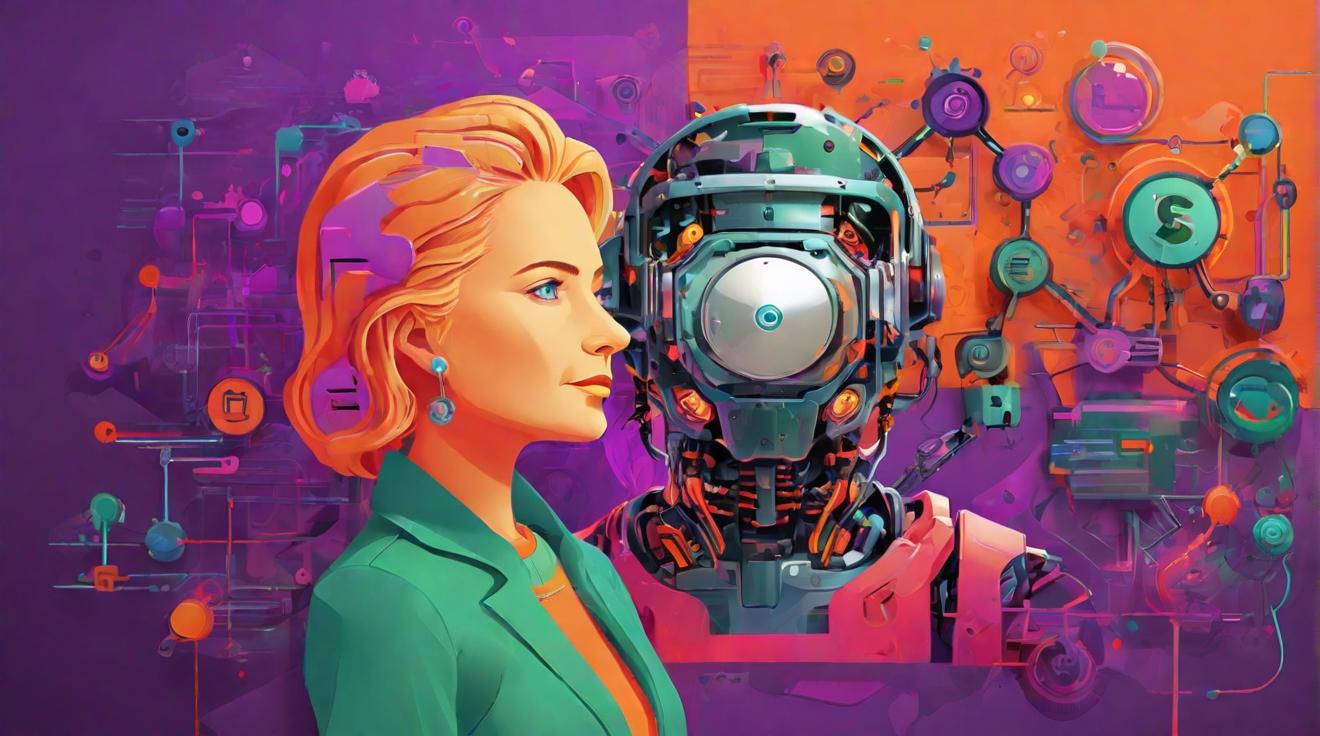AI Interviews: A Growing Trend in Hiring Practices
According to a survey conducted in 2020, over half of the companies surveyed stated that they were increasing their investment in automated recruiting measures. This includes the use of Artificial Intelligence (AI) in conducting interviews. One man from the DC metro area, Ty, had a phone interview with what he later discovered was an AI system named Jaime. He described the interaction as robotic, with Jaime rushing through the questions without allowing him to fully answer.
The use of AI in interviews is expected to become even more commonplace in the coming years. A survey by Resume Builder predicted that by 2024, four out of ten companies would utilize AI to conduct interviews, with 15% even making hiring decisions without any human input at all. This trend is not without its critics, however.
Adele Walton, a journalist from Brighton, England, described her experience with an AI interview as unnatural and distracting. She found it difficult to concentrate while having to view herself on the screen and was unable to gauge reactions, which she felt was detrimental to the process.
On the other hand, Fanta-Marie Touré, a cybersecurity professional from Atlanta, has found value in utilizing AI to enhance her job applications. However, she emphasizes the importance of personalizing the content, as some job seekers try to exploit AI systems in the recruitment process. Thankfully, companies are becoming more vigilant against such tactics.
While some applicants may see the benefits of using AI in their interviews, there is a growing skepticism towards AI-generated resumes. ZipRecruiter’s chief economist points out that many companies still value direct face-to-face assessments when evaluating candidates. In fact, there is an emerging trend of applicants using AI in real-time during interviews, despite ethical concerns regarding fairness and honesty in the recruitment process.
One of the main concerns surrounding AI hiring practices is the potential for bias and discrimination. There have been instances where AI systems have shown favoritism towards certain demographics, further exacerbating inequality and bias in the job market. This tends to impact entry-level or low-level positions more severely.
As the use of AI in hiring practices continues to expand, it is important for companies to address these concerns and ensure that they are using this technology in a fair and unbiased manner. Job seekers must also be mindful of exploiting AI systems, as this could have negative consequences for both the individual and the overall recruitment process.
Analyst comment
Neutral news: The use of AI in interviews is increasing, with 40% of companies predicted to utilize AI for interviews by 2024. Critics argue that AI interviews are unnatural and distracting, while some find value in utilizing AI to enhance job applications. Concerns about bias and discrimination in AI hiring practices are also raised. Companies and job seekers must address these concerns to ensure fair and unbiased use of AI in the recruitment process. Market implication: The market for AI in hiring practices is expected to grow, but concerns about bias and ethical issues may impact adoption.













